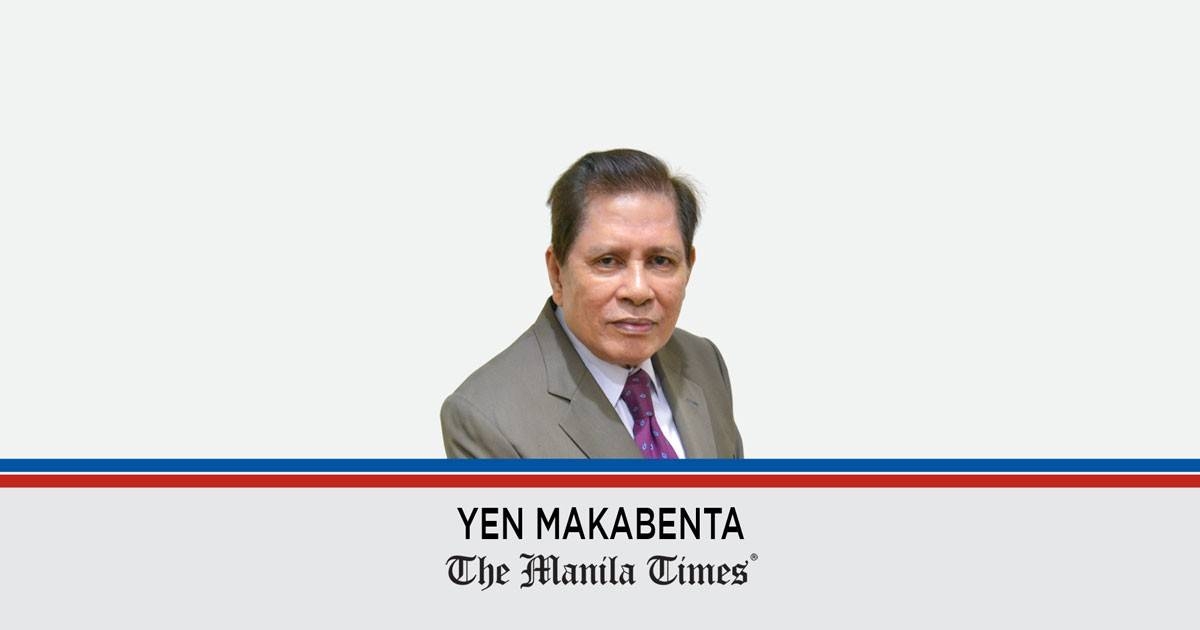
PHILIPPINE PUBLIC DIPLOMACY AND CHINA'S CONDUCT IN THE SOUTH CHINA SEA
First word
TRADITIONALISTS distinguish between a foreign policy based on values and a foreign policy based on interests. They describe as vital those interests that would directly affect national security and thus merit the use of force.
National strategic interests are vital because if we fail to protect them, our very survival would be at stake.
If there is one area where Manila is outsmarting Beijing in the contest for support and understanding by the international community in their territorial dispute in the South China Sea (West Philippine Sea), it is perhaps in the area of public diplomacy.
Filipino defense officials, diplomats and communicators have done better in communicating their government's basic position and actions in the dispute.
In the contest of competitive credibility, the Philippine government, by keeping close always to the rules and norms of the international maritime order and to the letter and spirit of the United Nations Convention on the Law of the Sea (Unclos), has consistently won more support and understanding internationally. More countries, particularly the US and North America, the European Union, and Australia and New Zealand in Oceania, have expressed their support for the Filipino position in the dispute. And many have gone further to offer military assistance and equipage to shore up the Philippine military's defense capability.
This has not happened just by accident or good luck. It is rather the result of our government's superior use of public diplomacy and soft power in international relations.
Public diplomacy
According to Wikipedia, "In international relations, public diplomacy, broadly speaking, is any of the various government-sponsored efforts aimed at communicating directly with foreign publics to establish a dialogue designed to inform and influence with the aim of building support for the state's strategic objectives. These also include propaganda. As the international order has changed over the 20th century, so has the practice of public diplomacy. Its practitioners use a variety of instruments and methods ranging from personal contact and media interviews to the Internet and educational exchanges.
"In his essay 'Public Diplomacy' Before Gullion: The Evolution of a Phrase,' Nicholas J. Cull of the USC Center on Public Diplomacy writes, 'The earliest use of the phrase 'public diplomacy' to surface is actually not American at all but in a leader piece from the London Times in January 1856. It is used merely as a synonym for civility in a piece criticizing the posturing of President Franklin Pierce.' Cull writes that Edmund Gullion, dean of the Fletcher School of Law and Diplomacy at Tufts University and a distinguished retired foreign service officer, 'was the first to use the phrase in its modern meaning.' In 1965, Gullion founded the Edward R. Murrow Center of Public Diplomacy.
"An early Murrow Center brochure provided a convenient summary of Gullion's concept:
"'Public diplomacy ... deals with the influence of public attitudes on the formation and execution of foreign policies. It encompasses dimensions of international relations beyond traditional diplomacy: the cultivation by governments of public opinion in other countries; the interaction of private groups and interests in one country with another; the reporting of foreign affairs and its impact on policy; communication between those whose job is communication, as diplomats and foreign correspondents; and the process of intercultural communications.'
"Over time, the concept and definition of public diplomacy have evolved, as demonstrated by the following statements from various practitioners.
"'Public diplomacy may be defined, simply, as the conduct of international relations by governments through public communications media and through dealings with a wide range of nongovernmental entities (political parties, corporations, trade associations, labor unions, educational institutions, religious organizations, ethnic groups, and so on including influential individuals) for the purpose of influencing the politics and actions of other governments.' (Alan K. Henrikson, professor of diplomatic history (April 2005).
"The United States Information Agency (USIA), which was the main government agency in charge of public diplomacy until it merged with the Department of State in 1999, described it as 'seek[ing] to promote the national interest and the national security of the United States through understanding, informing, and influencing foreign publics and broadening dialogue between American citizens and institutions and their counterparts abroad.'
"Standard diplomacy might be described as the ways in which government leaders communicate with each other at the highest levels, the elite diplomacy we are all familiar with. Public diplomacy, by contrast, focuses on the ways in which a country (or multilateral organization such as the United Nations) communicates with citizens in other societies. A country may be acting deliberately or inadvertently and through both official and private individuals and institutions. Effective public diplomacy starts from the premise that dialogue, rather than a sales pitch, is often central to achieving the goals of foreign policy: public diplomacy must be seen as a two-way street. Furthermore, public diplomacy activities often present many differing views as represented by private American individuals and organizations in addition to official US government views.
"Traditional diplomacy actively engages one government with another government. In traditional diplomacy, US Embassy officials represent the US government in a host country primarily by maintaining relations and conducting official business with the officials of the host government, whereas public diplomacy primarily engages many diverse nongovernment elements of society."
Soft power
Harvard professor Joseph Nye coined the term "soft power" as a counterpart to public diplomacy. In his book, "The Paradox of American Power" (Oxford University Press, New York, 2002), he wrote:
"Military power and economic power are both examples of hard command power that can be used to induce others to change their position. Hard power can rest on inducements (carrots or threats) sticks. But there is also an indirect way to exercise power. A country may obtain the outcomes it wants in world politics because other countries want to follow it, admiring its values, emulating its example, aspiring to its level of prosperity and openness. In this sense, it is just as important to set the agenda for world politics and attract others as it is to force them to change through the threat or use of military or economic weapons. This aspect of power getting others to want what you want — I call soft power. It co-opts people rather than coerces them. Soft power rests on the ability to set the political agenda in a way that shapes the preferences of others. The ability to establish preferences tends to be associated with intangible power resources such as an attractive culture, ideology, and institutions. If I can get you to do what I want, then I do not have to force you to do what you do not want to do.
"Soft power is not nearly the same as influence. Soft power is also more than persuasion or the ability to move people by argument. It is the ability to entice and attract ...
"Politics then becomes a contest of competitive credibility. Governments compete with each other and with other organizations to enhance their own credibility and weaken that of their opponents. Reputation has always mattered in world politics. But the role of credibility becomes an even more important power resource because of the deluge of free information and the 'paradox of plenty' in an information age."
This will infuriate our Chinese neighbors and their partisans in the country, but the Philippines today is more credible than China despite all its money and weapons in the SCS dispute.
The time has come for our government to establish a center for public diplomacy to implement a serious program for public diplomacy and soft power that would be manned by the departments of foreign affairs, defense and communications.
2024-07-05T16:25:25Z dg43tfdfdgfd
